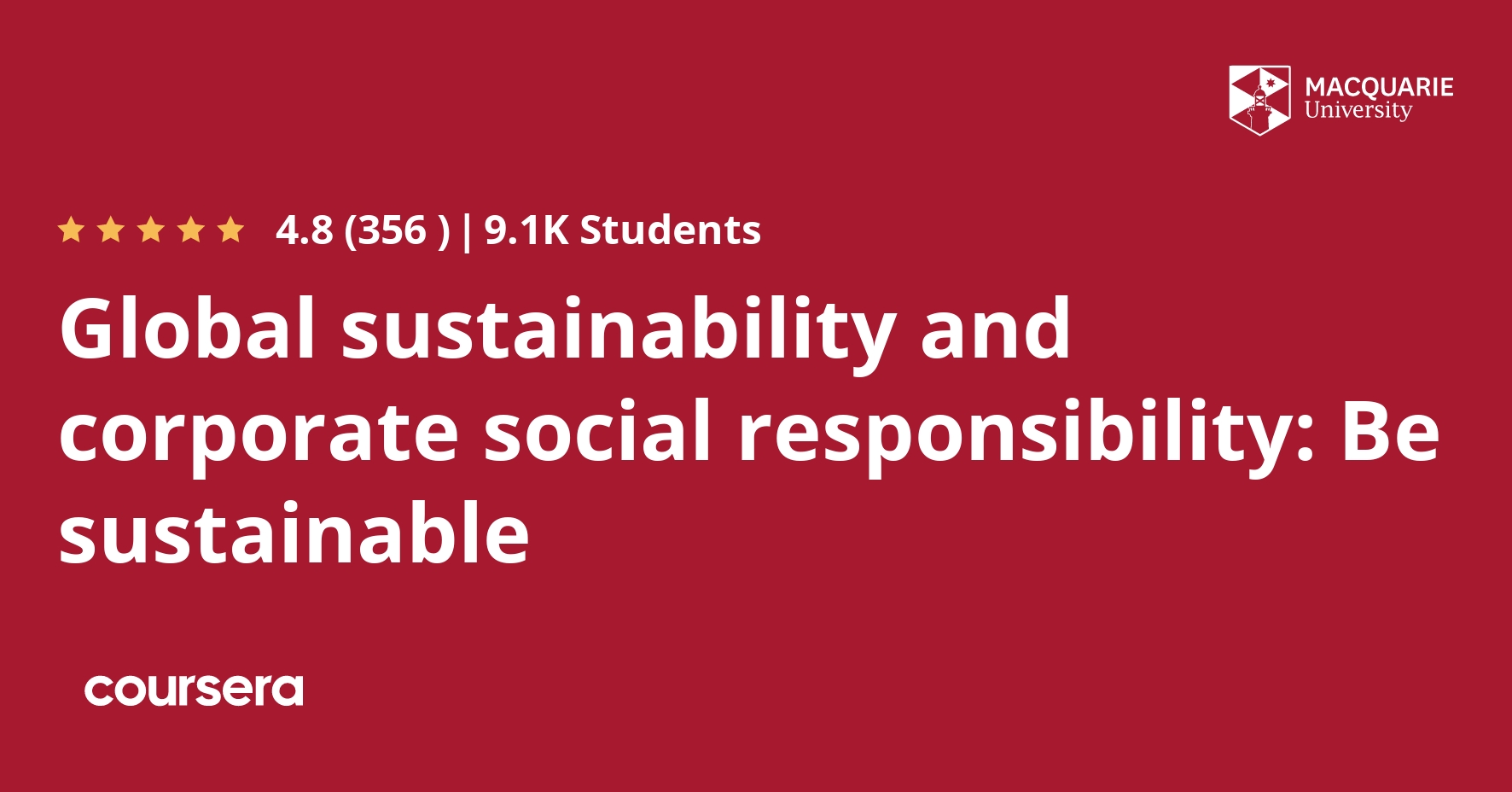Description
It is no longer acceptable for organisations to focus entirely on financial success if they are to be competitive on the global stage. As corporate scandals continue to make headlines, you will expand your strategic thinking beyond your organisation’s competitive financial environment to consider its broader impact on society. You will grapple with the conflicting outcomes of maximising financial return and societal impact as you develop the skills to create a balance that is sustainable. Through structured learning activities (video lectures, quizzes, discussion prompts and written assessments) you will gain an appreciation of how important sustainability will be for every organisation in the future – and how to achieve it.
What you will learn
The nature of sustainability
What is sustainability, why, and when did the concept develop, and why is it of crucial strategic importance for business? This week you will be introduced to the drivers that have given rise to the concept of sustainability; the diverse range of ethical, social, and environmental issues it contains; and the main global definitions, goals and frameworks of sustainable development. To provide context for the above, you will start by reviewing contemporary examples, from some of the world’s most powerful corporations, of how neglect of sustainability has resulted in massive financial, reputational, and social costs.
Concerns with business impacts
What is it about the history and practices of business that have given rise to wider societal concerns regarding its impact on the sustainability of our world? Focussing upon three major developments – i) industrialisation, ii) neoliberalism, and iii) globalisation – this week you will examine the root of concerns with business impact on areas such as environmental pollution, inequality, and the quality of working lives. Understanding some of this wider critical context is an essential foundation if businesses and business leaders are to retain or gain the trust of the community, consumers, regulators, and employees.
Strategic responses to sustainability
Given the complexities of the relationship between business and sustainability, what are the key sustainable strategies that businesses can employ? You will be introduced to three such strategies this week, organised around: i) business ethics, ii) corporate social responsibility (CSR) and corporate philanthropy, and iii) natural or green capitalism. Through an examination of contemporary business practices, you will see that strategies in the above areas may still signal a variety of value positions by businesses, including those proactively committed to, reactive to, and resistant of sustainability.
The difficulty of being ethical in organisations
Why is it that some business leaders may knowingly engage in strategies that are unsustainable? Is there something particular to formal organisational structures that make them spaces where being ethical can seem the hardest thing to do? This week we consider important social scientific research that examines the dynamics by which such things as organisational hierarchy, too close an identification with work roles, a focus on procedures and instrumental outcomes, even relations of authority, can dramatically inhibit or subvert our sense of ethical responsibility in organisations.





